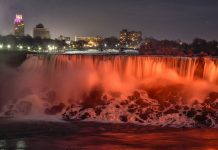 The controlled substances act (CSA), a federal law, lists Marijuana as a schedule 1 narcotic and thus makes it illegal to use, possess, and sell.
The controlled substances act (CSA), a federal law, lists Marijuana as a schedule 1 narcotic and thus makes it illegal to use, possess, and sell.
The 10th amendment to the Constitution leaves all rights to the states that were not explicitly given to the federal government in the drafting of the Constitution.
The Supremacy Clause of the Constitution states that Federal law is “the supreme law of the land” and pre-empts state law.
What’s the deal?
Just because the Federal Government has criminal penalties for Marijuana use/possession does not mean that states have to have such penalties. The Supremacy Clause, one would think, would force states to punish according to the guidelines of the CSA. This is not the case. Under the Constitution, states are free to create and enforce state laws as they wish.
Example: Colorado’s Amendment 64, allowing recreational use of Marijuana, did not necessarily legalize marijuana, but eliminated punishments for using Marijuana in a way that was consistent with the methods of use prescribed by Colorado’s law. Thus, it is perfectly fine for Colorado to pass this Amendment, as it enacted a regulatory system that eliminated state and local penalties for use as prescribed under the Amendment.
If the Federal Government wished to enforce CSA laws in Colorado, it would have to send federal agents to Colorado and arrest individuals under federal law. Estimates have that enforcing the CSA ban on marijuana in Colorado alone would take up the entire Department of Justice’s budget on enforcing drug laws, obviously a very inefficient tactic.
Shortly after Colorado began selling its marijuana recreationally, neighbors Oklahoma and Nebraska filed suit, arguing that the effects of Colorado’s law were felt in their states and that the law should be pre-empted by the CSA. The Supreme Court denied review.
Where we stand now with this discrepancy in the laws is that, for now, states that allow the recreational sale and those who decide to use marijuana recreationally are safe from state prosecution, and are very unlikely to be arrested by federal agents. At any time, however, this can be challenged or cracked down upon. It is still a federal crime to possess Marijuana even if you are not violating state law. Until then, we await for state and federal law to work together as one.

















